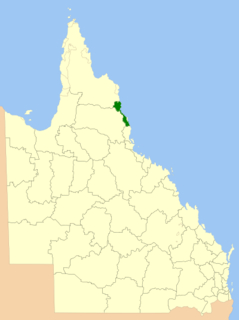| Commission overview | |
|---|---|
| Formed | 1992 |
| Jurisdiction | Queensland Government |
| Headquarters | Brisbane |
| Employees | 58 |
| Minister responsible |
|
| Commission executives |
|
| Parent department | Department of Justice and Attorney-General |
| Key document |
|
| Website | ecq |
The Electoral Commission of Queensland (ECQ) is established under the Electoral Act 1992 as an independent statutory authority, responsible for the impartial conduct of state and local government elections in Queensland.
The Commission has three main functions. It must administer Queensland's electoral laws, conduct democratic parliamentary and industrial elections which are free and review local government boundaries. [1] It is also responsible for referendums, electoral redistributions, education and research into matters related to Queensland elections, providing information to all levels of government, ensuring the electoral roll is maintained and the registering of political parties. [2]
In 2010, the Commission announced it was conducting research into assisting the deaf and blind to cast a secret vote electronically. [3] However, due to legislative restrictions, electronic voting was not available for the 2012 state election. [4]
Electoral systems of the Australian states and territories are broadly similar to the electoral system used in federal elections in Australia.
The boundary commissions in the United Kingdom are non-departmental public bodies responsible for determining the boundaries of constituencies for elections to the House of Commons. There are four boundary commissions:

The Help America Vote Act of 2002, or HAVA, is a United States federal law which passed in the House 357-48 and 92-2 in the Senate and was signed into law by President Bush on October 29, 2002. The bill was drafted in reaction to the controversy surrounding the 2000 U.S. presidential election, when almost two million ballots were disqualified because they registered multiple votes or no votes when run through vote-counting machines.

In the United Kingdom, the Electoral Commission is the national election commission, created in 2001 as a result of the Political Parties, Elections and Referendums Act 2000. It is an independent agency that regulates party and election finance and sets standards for how elections should be run.

The Australian Electoral Commission (AEC) is the independent federal agency in charge of organising, conducting and supervising federal Australian elections, by-elections and referendums.
Elections in Australia take place periodically to elect the legislature of the Commonwealth of Australia, as well as for each Australian state and territory and for local government councils. Elections in all jurisdictions follow similar principles, although there are minor variations between them. The elections for the Australian Parliament are held under the federal electoral system, which is uniform throughout the country, and the elections for state and territory Parliaments are held under the electoral system of each state and territory.
India has a parliamentary system as defined by its constitution, with power distributed between the central government and the states.

The Queensland Greens is a Green party in Queensland, Australia, and a state member of the Australian Greens. The Greens were first founded in Queensland as the Brisbane Green Party in 1984, contesting four wards and for mayor in the 1985 Brisbane City Council elections. Following the collapse of the Brisbane Greens in 1986, the party began to re-form as the Queensland Greens under a national initiative, today's Australian Greens. The Queensland Greens were officially founded as a political party on 22 September 1991 as part of the national Greens alliance.

The New South Wales Electoral Commission is a statutory agency with responsibility for the administration, organisation, and supervision of elections in New South Wales for state government, local government, industrial and Aboriginal organisations, and registered clubs and statutory bodies.

The Shire of Torres is a local government area located in Far North Queensland, Australia, covering large sections of the Torres Strait Islands and the northern tip of Cape York Peninsula north of 11°S latitude. It holds two distinctions—it is the northernmost Local Government Area in Australia, and is the only one to abut an international border – it is at one point just 73 kilometres (45 mi) from Papua New Guinea. It is administered from Thursday Island.

The Cairns Region is a local government area in Far North Queensland, Queensland, Australia, centred on the regional city of Cairns. It was established in 2008 by the amalgamation of the City of Cairns and the Shires of Douglas and Mulgrave. However, following public protest and a referendum in 2013, on 1 January 2014, the Shire of Douglas was de-amalgamated from the Cairns Region and re-established as a separate local government authority.
Electronic voting by country varies and may include voting machines in polling places, centralized tallying of paper ballots, and internet voting. Many countries use centralized tallying. Some also use electronic voting machines in polling places. Very few use internet voting. Several countries have tried electronic approaches and stopped, because of difficulties or concerns about security and reliability.

The 2012 Queensland state election was held on 24 March 2012 to elect all 89 members of the Legislative Assembly, a unicameral parliament.

Pirate Party Australia is a political party in Australia that had traditionally represented civil liberty issues, but had also expanded into more traditional areas of policy. It was a Pirate Party which was based on the Pirate Party of Sweden, and continued to develop a comprehensive policy platform since its formation based on the Pirate ethos.

The Secular Party of Australia is a minor Australian political party, founded in January 2006 and registered as a federal political party in 2010. It aims to promote secular humanist ethical principles and the separation of church and state in Australia.
Katter's Australian Party (KAP) is an agrarian political party in Australia. It was founded by Bob Katter, an independent and former Nationals MP for the seat of Kennedy, with a registration application lodged to the Australian Electoral Commission in 2011.

The 2015 Queensland state election was held on 31 January 2015 to elect all 89 members of the unicameral Legislative Assembly of Queensland.

The 2017 Queensland state election was held on 25 November 2017 to elect all 93 members of the Legislative Assembly of Queensland, the unicameral Parliament of Queensland.

The Election Commission of India (ECI) is a constitutional body. It was established by the Constitution of India to conduct and regulate elections in the country. Article 324 of the Constitution provides that the power of superintendence, direction, and control of elections to parliament, state legislatures, the office of the president of India, and the office of vice-president of India shall be vested in the election commission. Thus, the Election Commission is an all-India body in the sense that it is common to both the Central government and the state governments.